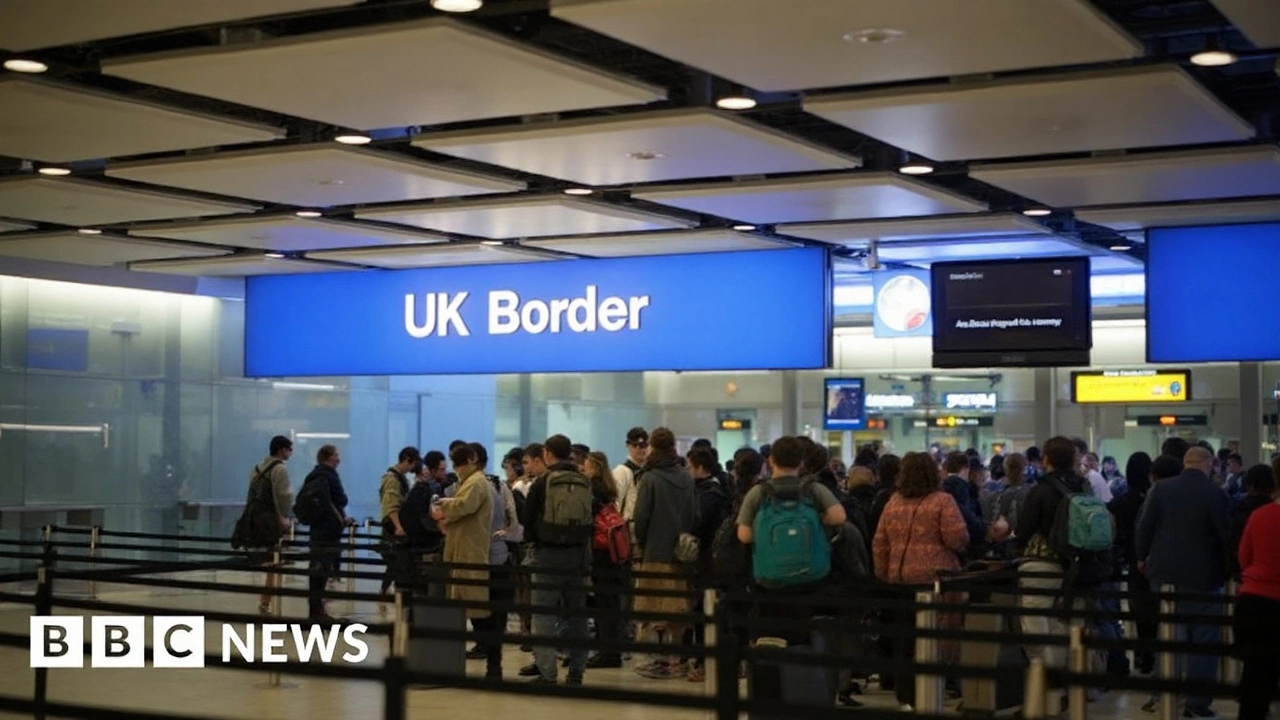When Nigel Farage and his Reform UK team rolled out a fresh batch of immigration ideas on Monday, the reaction was immediate and fierce. The headline‑grabbers – scrapping the right to apply for indefinite leave to remain (ILR) and denying benefits to anyone who isn’t a British citizen – sound like something out of a hard‑line manifesto, not a policy paper meant for parliamentary debate.
The proposals in detail
At the core of Reform UK’s plan is a complete overhaul of the settlement route that migrants have followed for decades. Under the current system, after five years of lawful residence an individual can submit an ILR application, which, if approved, lets them stay for the rest of their lives without needing to renew a visa. Farage’s version would kill that pathway. Instead, every migrant would have to apply for a fresh visa every five years, regardless of how long they’ve lived in the country.
On top of that, the party wants to raise the bar on who can even qualify for those five‑year visas. A higher salary threshold – though the exact figure was left vague – would be introduced, and applicants would need to demonstrate a “higher standard” of English proficiency. The residency clock would also be stretched from five to seven years before anyone could be considered for any form of settled status, effectively delaying the point at which families could gain long‑term security.
Family reunification would feel the heat too. The new rules propose tighter limits on bringing spouses and children to the UK, meaning that many families already anchored in British towns could face forced separations or long, costly bureaucratic hoops.
- ILR abolished – visas renewed every five years.
- Higher salary requirement (exact number undisclosed).
- Stricter English language benchmark.
- Residency period extended to seven years for settled status.
- More hurdles for spouses and children joining migrants.
And there’s a welfare angle that many critics are zeroing in on. Reform UK says anyone without UK citizenship would be barred from claiming state benefits – a move that would affect not just recent arrivals but also long‑term residents who have never taken UK citizenship for any number of personal reasons.

Political fallout and unanswered questions
The reaction from the political aisle was swift. London’s mayor, Sadiq Khan, called the plan “unacceptable,” arguing that threatening to deport people who are already working and paying taxes runs counter to basic human decency. Labour, the Liberal Democrats and even some Conservative backbenchers echoed those concerns, pointing out that the NHS, hospitality and construction sectors rely heavily on migrant labour.
When pressed about the lack of specifics, Farage tried to deflect by asking, “What about the ones that aren’t working? What about the ones who have never and never will work?” He framed the debate as a moral one about who deserves to stay, but the practicalities quickly fell apart.
Journalists and policy analysts have highlighted a litany of gaps:
- Exactly how high must the salary be? The party admitted they would announce that “down the line.”
- What would the cost to businesses be if they suddenly had to prove higher wages for a shrinking pool of migrant workers?
- How many families would be split up under the new spouse‑and‑child rules?
- What happens to pensioners who rely on a migrant‑run network for care?
- How long would the administration of five‑year visa renewals take – months, years?
Even the Office for Budget Responsibility’s numbers have been called into question. The Crown Prosecution Service released a statement saying the OBR had revised its fiscal definitions, meaning previous cost estimates for such immigration overhauls can’t be used any longer. This adds another layer of uncertainty for a policy that already feels under‑cooked.
Critics argue that any serious political party would have a clear answer to those questions before unveiling a plan that could affect tens of thousands of legal residents. Instead, Reform UK appears to be playing a high‑stakes game of political theater, hoping the headlines will drown out the details.
Regardless of the political spin, the human impact is already being felt. Migrants who have built lives, bought homes and raised children in the UK are suddenly faced with the prospect of having to prove they’re “worth” staying every five years. For many, the message reads like a warning bell, not a policy upgrade.
As the debate rages in Parliament, the public arena is full of personal stories – a Polish nurse caring for COVID patients, a Indian IT specialist leading a team of developers, a Nigerian family who moved to Manchester ten years ago. Their voices are beginning to push back against a narrative that paints all migrants with the same broad brush.
With the next general election looming, Reform UK’s immigration stance could become a litmus test for how far right‑leaning parties can push on welfare and settlement issues without losing the support of swing voters who recognize the economic and social contributions of migrant communities.

